4 Website Metrics that matter and influence how well your website shines on search engines and in the eyes of your customers.
Get In TouchWebsite metrics are important because they give you an idea of how your site is performing and where you can improve. There are a variety of available, but not all of them are equally important.
Why Do They Matter?
Optimising website standards is a core part of ensuring your eCommerce business is successful - this an investment, which will eventually pay off ten fold if you take it seriously and commit to the process.
There's a few factors to consider, but ideally you should be sticking the metrics that pack and punch. As the old saying goes, sometimes less is more - and the same can be said here. Rather than worrying about 101 different metrics, just consider those we cover to start with.
We guarantee it's worth the read.
Website Traffic
We all know that webpage traffic is important for ecommerce stores. But what are the specific metrics that matter, and can you improve them?
One key metric is website bounce rate. This measures the percentage of visitors who leave your site after viewing only one page.
A high bounce rate indicates that your site isn't providing what visitors are looking for, so it's important to keep an eye on this number and work to improve it.
Another key metric is conversion rate, which measures the percentage of visitors who take a desired action on your site (such as making a purchase). Again, a low conversion rate indicates that something needs to be improved on your site.
Google Analytics
The good news is, there are plenty of ways to increase your websites traffic. And, when you monitor website traffic with Google Analytics, you can get data-driven insights into which tactics are working and which ones aren't.
To gain this valuable information, simply pull up Chrome and log into Google Analytics. Click on Audience in the left navigation panel, and then select Overview.
This is such a quick way of evaluating your websites performance, well before you make change.
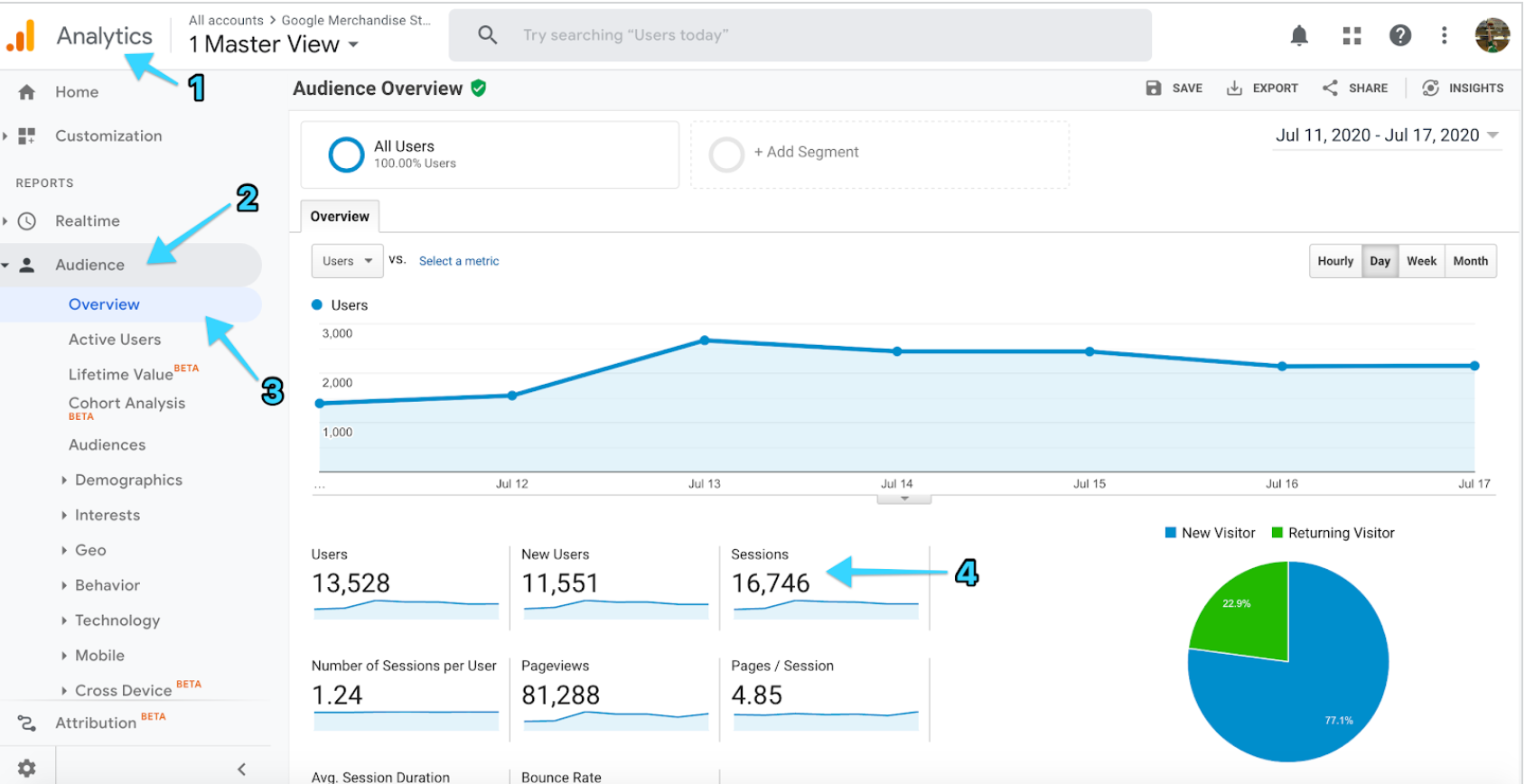
Google Analytics Dashboard
Improving Website Traffic
So how can you improve website traffic, and ultimately bring in more customers?
Well, theres no set solution. There are heaps of factors that contribute to a metric as broad as website traffic. Some of our top recommendations would be to improve:
- Website speed
- The content and copy used
- Search engine optimisation
- Usability and functionality
- Website design and user experience
Honestly, we could (and have) dedicated entire blog posts to some of these concepts because there is a lot to consider with each. If you're interested in a deeper read, explore our post on reasons why your website may not be converting.
As a digital agency we understand that some of this is just not achievable without a little bit of expertise in your corner, which is why we create eCommerce stores built for conversions.
Page Load Speeds
Websites today are expected to load quickly and efficiently. If your website isn't up to par, you could be losing visitors and potential customers.
One of the most important things to track is your page loading speed. Visitors will leave your site if it takes too long to load, so this is a key metric to watch.
And as an added bonus, the faster your webpage loading speed is, the higher your rank in Google. Win-win.
Analyzing Page Loading Speed
There are various ways to analyze page loading speeds, and thankfully there are services in place to help you get the job done.
We'd recommend using both PageSpeed Insights and GTmetrix for ultimate accuracy.
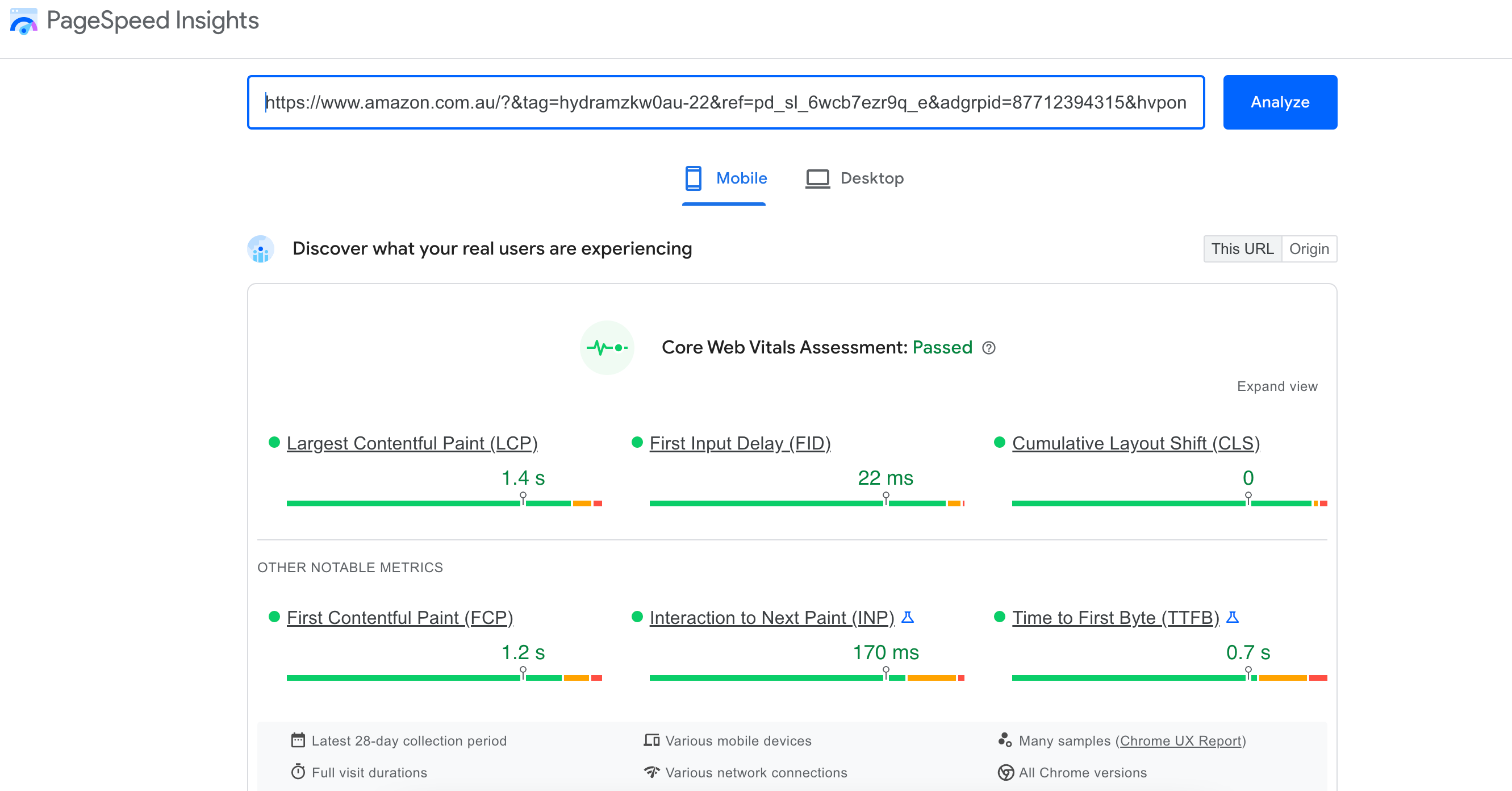
Page Speed Insights Example
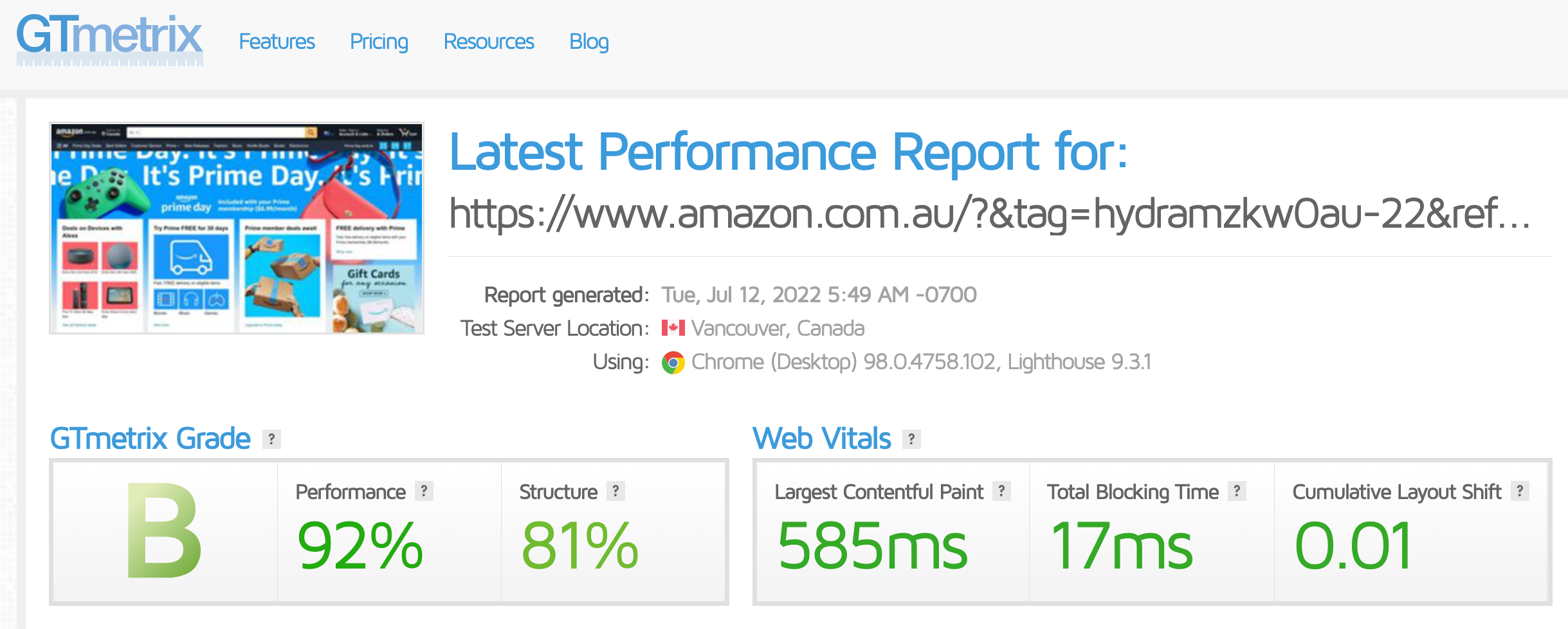
GTMetrix Example
Improving Page Loading Speeds
There are a number of ways to improve your website loading speed.
One is to optimize your images. Make sure that your images are compressed and saved in the correct file format.
You can utilise a website like TinyPNG which does this job perfectly.
Another way to improve your loading speed is to minify your HTML, CSS, and JavaScript files. This means removing unnecessary code from these files so that they load faster.
This powerful combination of changes, means more visitors will visit your website and are more likely to convert into a paying customer.
Watch Your Top Pages
Monitoring your top pages is important for a variety of reasons.
The Reasons Why
First, it allows you to gauge the performance of your website as a whole. Are people landing on your top pages and then bouncing? Are they spending a lot of time on your top pages?
Second, monitoring your top pages also allows you to identify which pages are most popular with your audience. This information can be used to improve the overall user experience on your website by making sure that popular pages are easy to find and navigate.
Finally, monitoring top pages can also help you troubleshoot technical issues on your website. If you notice that a particular webpage is not loading properly or that there are a lot of errors on a certain page, you can take steps to fix the issue and improve the experience for your users.
Tracking Your Sites Top Pages
One of the best ways to improve your website's top pages is by monitoring them closely. By tracking the most popular pages on your website, you can see what content is resonating with your audience and figure out what you can do to make those pages even better.
You can also use this information to target pages that could use a little more love and attention.
Google Analytics Is Your Friend
If you're not already monitoring your top pages, now is the time to start.
Again, Google Analytics is to the rescue. There are a number of different metrics you can track, but some of the most important ones to focus on include page views, unique visitors, bounce rate, and time on page. The image below shows how to find an overview of your top pages quickly and efficiently.
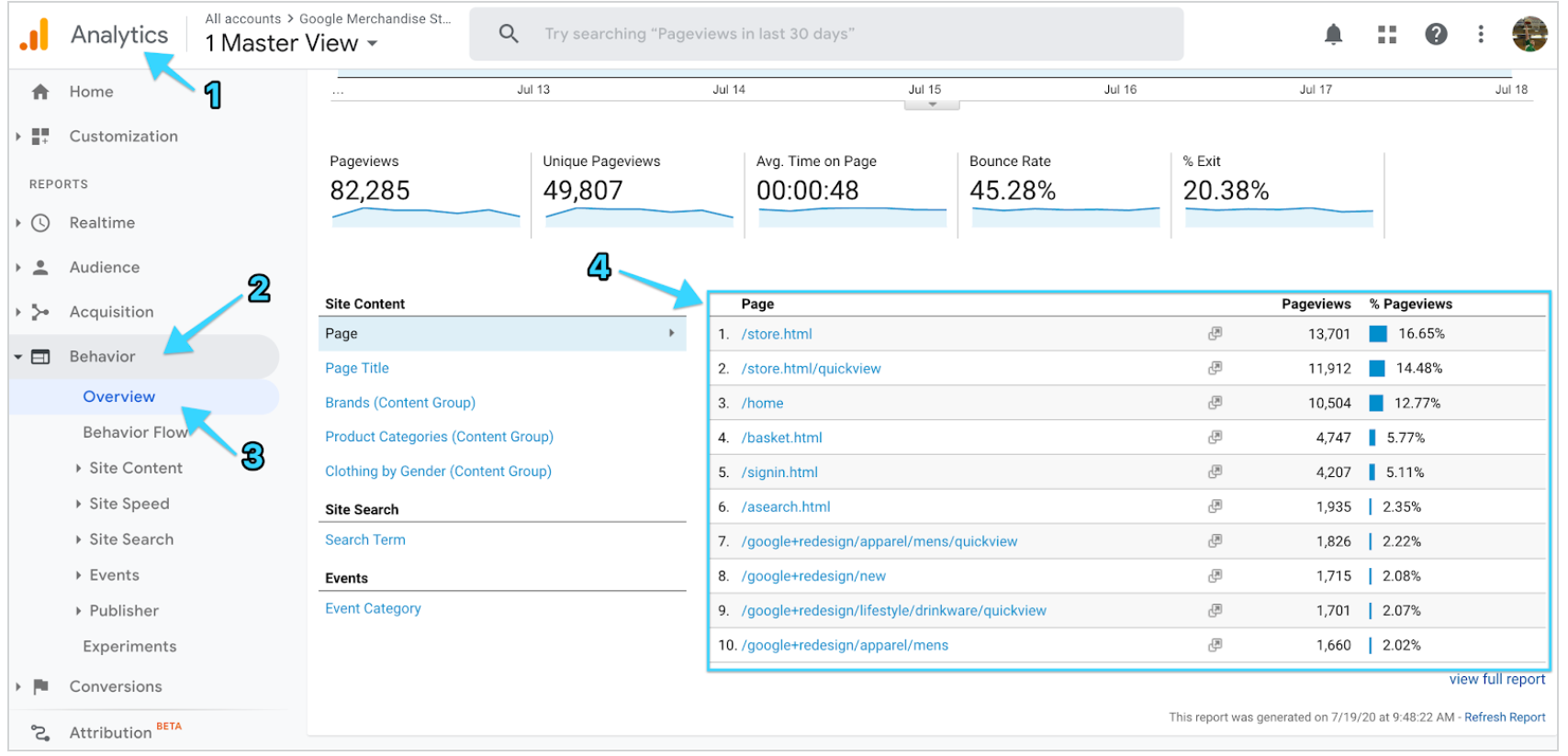
Google Analytics Top Pages
Improving Top Pages
We'd recommend the following optimisations, as an example:
Ensuring the site is well-designed and user-friendly.
This means ensuring that your pages are easy to navigate and that the content is organised in a way that makes sense. Additionally, your pages should be visually appealing and free of any errors or glitches.
Ensuring CTAs are relevant and well thought out.
And finally, promoting your top pages effectively.
This might involve sharing links to these pages on social media or other websites, or even running ads targeting people who are likely to be interested in what you have to offer.
Search Engine Optimisation
One of the most important aspects of a website is its search engine optimisation (SEO).
Without good SEO, it can be difficult for people to find a website, no matter how much quality content it contains. This is because search engines use algorithms to rank websites based on their relevance to particular search terms.
If a website is not optimised for these search engines, it will not appear as high in the results as one that has been properly created and optimised.
Let Your Website SEO Shine
One of the best ways to improve your SEO is by using keyword research. This involves finding the right keywords to target in your content, and ensuring that your website is optimised for those keywords.
By doing this, you will not only improve your ranking but also increase traffic to your website.
Optimising Your Website In Search Engines
Sumo updated one of their Buffer headlines, and see amazing results. You can see a massive spike in both clicks and click through rate (CTR), with just one small change.
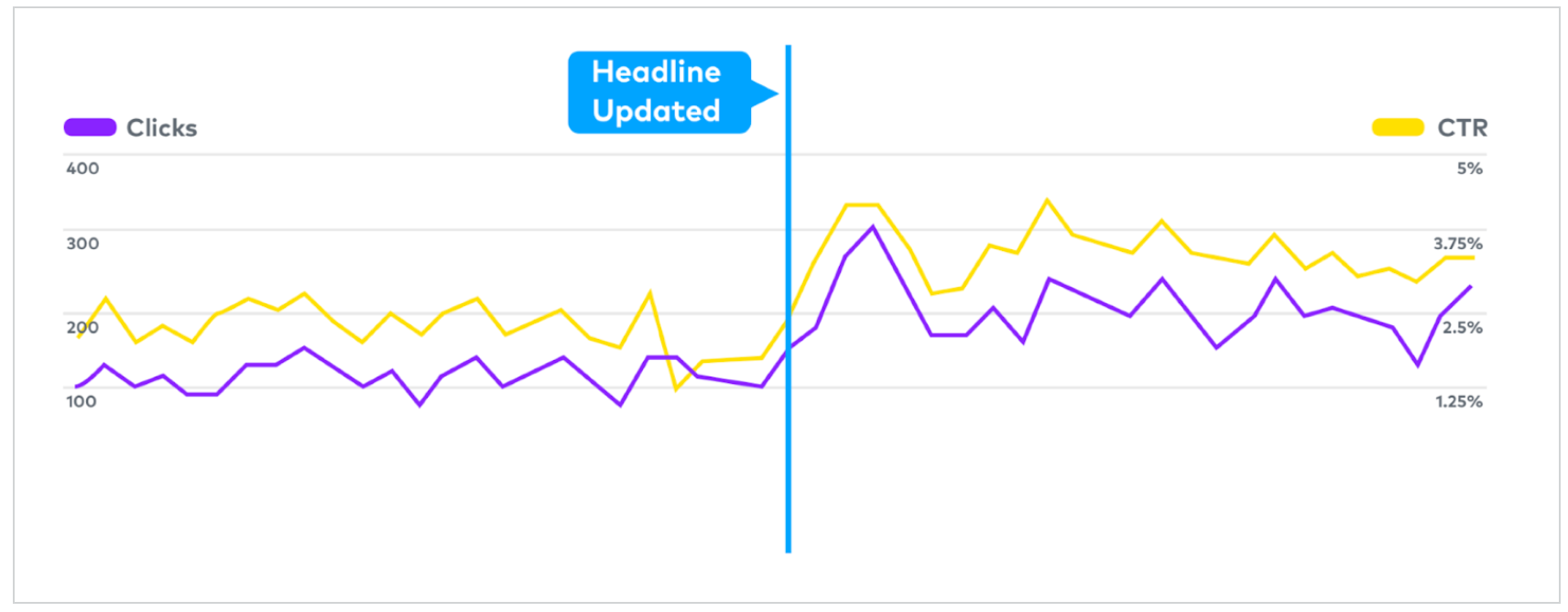
Google Search Console search traffic spikes
Closing Thoughts
Improving your website's performance is essential to keeping visitors happy and engaged, so don't ignore the importance of website metrics.
Even if you take just one two of them, your website and therefore business will be all the stronger for it.
The Next Move
The ultimate next move is letting an agency like Pixel manage the metrics that matter. Why? We know all of the trade secrets on how to beat some of these metrics and turn a poorly performing website into one that smashes scores on PageSpeed Insights and GTMetrix.
We've collected this experience over the last 10 years of working in web, and we know business owners need the help, that's why we offer a digital strategy workshop for anyone who needs it.
This workshop allows us to collect all of the information we need on your business, to tailor and create a 12 month digital strategy to inform you on how to grow your business.
If this is you, and you need some help, book a discovery call now.